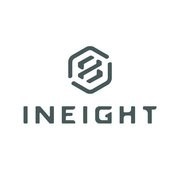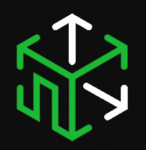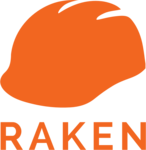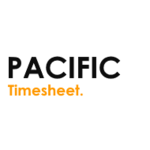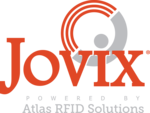Top Construction Management Softwares
Construction Management software helps streamline the planning, coordination, and control of construction projects. It assists project managers and teams in managing resources, timelines, and budgets efficiently. This software typically includes features like project scheduling, document management, and cost estimation. By utilizing these tools, teams can enhance collaboration and ensure projects ... Read More
299 companies found
Product Description
InEight is a versatile and reliable software solution designed to simplify and elevate the way construction projects are managed. Whether you're dealing with small-scale operations or large, complex endeavors, InEight tailors its features to fit the unique needs of your projects. The software covers various aspects of project management such as planning, estimating, budgeting, and scheduling, all ... Read More
Users
- • No Data
Industries
- • No Data
Market Segment
- • No Data
Product Description
Asite is a software solution designed to help businesses streamline their project management and collaboration processes. It's particularly beneficial for industries like construction and engineering but can be adapted to a variety of fields where meticulous project oversight is crucial. The platform lets teams manage documents, track tasks, and communicate seamlessly, all in one place. One of th... Read More
Users
- • No Data
Industries
- • No Data
Market Segment
- • No Data
thinkproject
Product Description
thinkproject is all about simplifying complex construction projects. They provide a cloud-based software solution specifically designed to help manage construction and engineering projects more efficiently. Their platform pulls together the different pieces of a project by offering tools for collaboration, communication, and data management. Whether you're dealing with schedules, budgets, or com... Read More
Users
- • No Data
Industries
- • No Data
Market Segment
- • No Data
Multivista
Product Description
Multivista is all about making construction project management easier and more effective. If you’re juggling various tasks, like tracking progress or ensuring everything stays on schedule and within the budget, Multivista might just be the tool you’re looking for. Imagine having a single platform where you can manage and monitor your entire construction site, right from your desk. Multivista ble... Read More
Users
- • No Data
Industries
- • No Data
Market Segment
- • No Data
Product Description
Highlands Software is all about making your work life easier. We offer a range of tools designed to help businesses of all sizes manage their operations better. Think of us as a reliable assistant who handles the complex parts of running a business, so you can focus on what you do best. At Highlands, we specialize in streamlining everyday tasks. Our software can help you manage everything from cu... Read More
Users
- • No Data
Industries
- • No Data
Market Segment
- • No Data
Product Description
PlanHub is a user-friendly software solution designed specifically for the construction industry. Its goal is to streamline communication and collaboration among general contractors, subcontractors, and suppliers, making it easier to manage projects from start to finish. Think of it as a digital meeting point where various stakeholders can come together to share details, documents, and updates, re... Read More
Users
- • No Data
Industries
- • No Data
Market Segment
- • No Data
Product Description
If you're in the construction industry, you know how important it is to keep everything on track and well-documented. That's where RAKEN comes in. RAKEN is a software solution designed specifically for construction professionals to simplify and improve their daily reporting process. RAKEN was built with the understanding that the construction environment is fast-paced and demanding, so it aims to ... Read More
Users
- • No Data
Industries
- • No Data
Market Segment
- • No Data
Pacific Timesheet
Product Description
Pacific Timesheet is a comprehensive time and attendance software that simplifies how businesses track and manage employee work hours. Designed for ease of use, it caters to various industries such as construction, manufacturing, healthcare, and education. The software focuses on streamlining the process of time tracking, ensuring that companies can easily monitor attendance, manage leave requests... Read More
Users
- • No Data
Industries
- • No Data
Market Segment
- • No Data
CoConstruct
Product Description
CoConstruct is a comprehensive software designed to make life easier for home builders and remodelers. It helps professionals in the construction industry manage their projects, stay organized, and communicate more effectively with clients and subcontractors. Whether you are juggling multiple projects or trying to streamline your business processes, CoConstruct offers tools that can help you handl... Read More
Users
- • No Data
Industries
- • No Data
Market Segment
- • No Data
Product Description
Jovix is a software solution designed to simplify and streamline the construction materials management process. It aims to make your job easier so you can focus on the bigger picture: completing your construction projects efficiently and on time. With Jovix, you can track and manage your materials from the moment they leave the supplier until they are installed on-site. This real-time visibility... Read More
Users
- • No Data
Industries
- • No Data
Market Segment
- • No Data
What are the key features of Construction Management software?
Construction Management software encompasses a variety of key features that facilitate effective project delivery, streamline operations, and ensure successful project completion. These features aim to improve construction projects through better coordination, increased efficiency, and enhanced communication among stakeholders.
Project Scheduling and Planning
- Gantt Charts and Timelines: Visual tools for outlining project tasks, dependencies, and milestones help teams adhere to deadlines and allocate resources efficiently.
- Critical Path Method (CPM): Assists in identifying essential activities and estimating minimum project duration by analyzing the longest sequence of dependent tasks.
Budgeting and Cost Management
- Cost Estimation: Facilitates accurate project costing by allowing users to input labor, material, equipment, and other expenses.
- Budget Tracking: Tracks expenditures in real-time, comparing them against estimates to prevent overspending.
- Financial Forecasting: Utilizes historical data to predict financial outcomes, helping stakeholders plan for cash flow needs.
Resource Management
- Resource Allocation: Optimizes the distribution of resources like labor, equipment, and materials, minimizing downtime and maximizing productivity.
- Equipment Management: Tracks equipment usage, maintenance schedules, and availability to prevent delays caused by equipment failures.
Document Management
- Document Storage and Retrieval: Centralizes access to project files, blueprints, contract documents, and permits, making them easily accessible to authorized personnel.
- Version Control: Maintains a record of document changes, ensuring that everyone works with the most recent information.
Communication and Collaboration
- Messaging and Notifications: Facilitates communication among project teams, subcontractors, and other stakeholders to ensure timely exchange of important information.
- Collaborative Platforms: Enables real-time collaboration by allowing multiple users to view, comment, and collaborate on documents and project plans concurrently.
Risk Management
- Risk Assessment and Mitigation: Identifies potential project risks, assigns probability and impact scores, and develops strategies to mitigate issues.
- Incident Reporting: Tracks safety incidents, non-compliance events, and other risks that could impact project timelines or budgets.
Reporting and Analytics
- Customizable Reports: Generates progress reports tailored to specific needs, helping stakeholders track productivity and identify areas for improvement.
- Data Analytics: Uses data collected from various aspects of the project to deliver insights on trends, performance, and productivity metrics.
Quality Control
- Inspections and Checklists: Offers digital forms for onsite quality checks and inspections, ensuring projects meet predefined standards.
- Non-conformance Reporting: Documents any deviations from standards or plans, facilitating timely corrective actions.
Integration and Customization
- Third-party Integrations: Connects with other software solutions, such as accounting or design tools, to ensure streamlined workflows.
- Customizable Dashboards: Allows users to configure dashboard settings according to individual preferences or project needs for optimal usability.
These features highlight how Construction Management software becomes an indispensable tool for construction companies, enhancing every stage of the construction process from planning through completion.
How does construction management software improve project scheduling?
Construction Management software plays a pivotal role in enhancing the scheduling of construction projects. It acts as a digital facilitator, ensuring that all scheduling tasks are managed efficiently. Here’s how:
Streamlined Task Assignment
Construction Management software enhances project scheduling by streamlining task assignments. It allows for seamless allocation of tasks by defining the responsibilities associated with each phase of the project. The software provides clear timelines, which helps in reducing confusion and ensures everyone knows their exact duties, thus improving productivity.
Real-Time Updates and Tracking
The software allows for real-time updates and tracking, a crucial component for effective project scheduling. Team members can input progress updates, enabling project managers to track developments as they happen. This feature helps in identifying potential delays early, allowing for preemptive adjustments to the schedule.
Enhanced Communication
Effective communication is vital for staying on schedule in construction projects. Construction Management software improves communication among teams by providing a centralized platform for all project-related conversations. This ensures that all stakeholders are on the same page regarding timelines and changes to the schedule, reducing the likelihood of miscommunication.
Resource Allocation
Resource allocation is integral to project scheduling, and Construction Management software excels in this area by providing precise resource management tools. These tools help in allocating manpower, equipment, and materials optimally to maintain a seamless project flow. Proper resource management prevents bottlenecks that could otherwise lead to scheduling delays.
Automated Scheduling Tools
Automation is a significant advantage of Construction Management software. Automated scheduling tools can generate schedules based on project parameters, reducing the potential for human error. Such automation ensures that tasks are arranged sequentially and logically, optimally aligning project milestones.
Integration with Other Tools
Construction Management software often integrates well with other software tools such as BIM, CAD, and ERP systems. This integration allows for cohesive scheduling as it brings together all essential project components. Having all project data synchronized in one system helps streamline scheduling processes, ensuring that all elements are aligned.
Adaptive Planning
The unpredictable nature of construction projects necessitates adaptive planning. Construction Management software supports this by offering flexible scheduling options. It allows project managers to modify tasks and timelines in response to unforeseen issues, which is crucial for mitigating risks and maintaining progress.
Historical Data Analysis
Construction Management software also aids in improving scheduling through historical data analysis. By analyzing past projects, teams can predict potential pitfalls and set realistic timelines. This data-driven approach to scheduling enables more accurate forecasting and planning.
Visualization of Project Timelines
Visualization tools embedded within Construction Management software provide a clear visual representation of the project timeline. Gantt charts and other visual aids make scheduling more tangible, helping teams better understand the flow and dependencies of tasks. Such clarity is essential for keeping projects on track.
By incorporating these features, Construction Management software significantly enhances the efficiency of project scheduling, ensuring that construction projects are executed flawlessly from start to finish.
Can Construction Management Software Help with Budget Management?
Construction Management software plays a pivotal role in the building industry by enhancing various project-related processes. One of the critical areas where this software demonstrates its value is budget management. This software equips construction teams with tools tailored for planning, tracking, and managing project expenses, ensuring that financial resources are used efficiently.
Comprehensive Budget Planning
Construction Management software assists in developing detailed budget plans. It allows managers to input cost estimates for different phases of a project. By providing a platform for comprehensive budget planning, teams can allocate funds appropriately across labor, materials, equipment, and other resources. This pre-emptive planning fosters a structured financial overview and reduces unexpected financial challenges.
Real-time Budget Tracking
An essential feature of Construction Management software is real-time budget tracking. Through this capability, project managers can continuously monitor expenses against the budgeted figures. The software provides live updates on financial status, highlighting overspending or savings immediately as they occur. This proactive approach facilitates timely adjustments, preventing budget overruns.
Cost Control Measures
Construction Management software supports cost control by standardizing processes and offering analytical tools to evaluate financial performance. It helps identify cost variances and inefficiencies, aiding in immediate corrective actions. Tracking purchase orders, invoices, and payments becomes seamless, enhancing the control over financial transactions and ultimately optimizing budget adherence.
Forecasting Future Costs
The predictive analytics capabilities embedded in Construction Management software allow for precise forecasting of future costs. By analyzing historical data and current financial trends, the software can project future budgetary requirements. This foresight is crucial for anticipating potential budget constraints and strategizing to mitigate financial risks.
Integration with Accounting Systems
Integration with existing accounting systems is another key aspect of Construction Management software, ensuring financial data consistency across platforms. This synchronization minimizes errors associated with manual data entries and enhances the reliability of financial reports, which are vital for informed budget management decisions.
Enhanced Collaboration and Communication
Construction Management software promotes improved collaboration and communication among stakeholders. By delivering accurate and real-time budget information, it ensures that everyone involved is informed about the financial health of the project. This transparency aids in collective decision-making, aligning all parties towards maintaining the budget.
Reporting Capabilities
Finally, robust reporting capabilities within Construction Management software provide detailed insights into financial performance. These reports help stakeholders understand where financial deviations occur, facilitating targeted actions to ensure budgetary compliance. Standard and customized reporting options cater to diverse project requirements, enhancing overall budget management.
In conclusion, Construction Management software is instrumental in effective budget management throughout a construction project's lifecycle. By offering comprehensive planning, real-time tracking, and detailed analysis, it ensures financial discipline and supports strategic financial planning. Through these tools, construction teams can maintain control over budgets, anticipate potential issues, and optimize resources effectively.
What are the benefits of using cloud-based construction management software?
Cloud-based Construction Management software offers several advantages that cater specifically to the dynamic needs of the construction industry. This technology empowers managers and teams by improving efficiency, collaboration, and decision-making. Below are some significant benefits:
Real-Time Access and Updates
Cloud-based Construction Management software allows project stakeholders to access information and updates in real time, regardless of their location. This immediacy ensures that all team members are informed of recent changes, minimizing delays and enhancing productivity.
Enhanced Collaboration
A cloud-based platform fosters better collaboration among diverse teams involved in construction projects. It enables seamless communication and coordination between project managers, on-site workers, suppliers, and clients. This connectivity streamlines operations and reduces the risk of miscommunication.
Scalability and Flexibility
Cloud-based systems can easily scale according to the size and scope of a construction project. Whether managing a small-scale renovation or a large infrastructure development, cloud-based Construction Management software can be tailored to meet varying demands without significant investment in new infrastructure.
Cost Efficiency
Implementing cloud-based software reduces the need for expensive on-site hardware and IT support. Subscription-based models often replace large upfront costs, providing predictable budgeting and reducing total ownership costs. It eliminates maintenance expenses associated with traditional software and systems.
Improved Document Management
Handling a vast amount of documentation is a core aspect of construction projects. Cloud-based Construction Management software centralizes document storage, ensuring that all project-related materials are easily accessible and securely stored. This centralization helps manage contracts, blueprints, and compliance documents efficiently.
Enhanced Security
Construction projects deal with a plethora of sensitive information. Cloud-based applications typically offer robust security measures, ensuring that data remains protected against unauthorized access. Regular updates and security patches enhance the overall protection of vital project information.
Data-Driven Insights
Cloud-based systems provide analytical tools that offer valuable insights into project performance. These insights help managers make informed decisions based on real-time data. By analyzing trends and performance metrics, businesses can identify areas for improvement and implement strategic adjustments.
Remote Monitoring
Cloud-based Construction Management software enables project managers and stakeholders to monitor project progress remotely. This feature is particularly beneficial for professionals managing multiple projects in various locations, as it allows overseeing operations without being physically present at the site.
Streamlined Workflow
Cloud-based platforms contribute to optimizing workflows by automating routine tasks, such as scheduling, tracking, and reporting. Automation frees up time for teams to focus on more strategic activities, enhancing productivity and efficiency across the board.
Disaster Recovery
Having data stored in the cloud ensures there is a reliable backup in case of on-site failures or disasters. This aspect of cloud-based Construction Management software minimizes data loss risks and aids in quicker recovery, keeping projects on track despite unforeseen events.
Incorporating cloud-based Construction Management software brings structured improvement to construction project management. This technology simplifies processes, enhances collaboration, and provides the tools needed to successfully manage complex projects with greater agility and efficiency.
How does construction management software assist in document management?
Construction Management software plays a crucial role in handling documents in the construction industry. Managing documents efficiently is a significant challenge given the voluminous paperwork involved in construction projects. This software offers a structured approach to storing, sharing, and organizing documents, enhancing project efficiency and regulatory compliance.
Centralized Document Repository
One of the primary ways Construction Management software assists in document management is by providing a centralized repository. This means all project-related documents such as blueprints, contracts, permits, and invoices are stored in a single location. This centralization reduces the risk of document loss and ensures easy access for all authorized personnel, ensuring consistency across the project.
Version Control
Construction Management software incorporates version control mechanisms that are vital for document management. During a construction project, documents often need modifications and updates. Without proper version control, teams may work on outdated information, leading to costly mistakes. This software tracks changes, maintaining a complete history of document versions, which helps in auditing and ensuring that the most current information is always available.
Permission-Based Access
Document security is a critical concern in the construction industry. Construction Management software typically offers permission-based access control. This feature ensures that only authorized personnel can access, modify, or share documents. Implementing permission levels prevents unauthorized access and helps protect sensitive information, such as financial details or proprietary designs.
Real-Time Collaboration
Construction projects often involve collaboration among various stakeholders, including architects, engineers, contractors, and clients. Construction Management software facilitates real-time collaboration by allowing multiple users to review, edit, and comment on documents simultaneously. This capability reduces delays, minimizes misunderstandings, and streamlines communication, thereby improving project outcomes.
Automated Workflows
The automated workflow features in Construction Management software aid in document management by automating routine tasks such as routing documents for approvals, notifications, and document archiving. Automating these processes reduces manual intervention, decreases the chance of errors, and expedites project timelines. This efficiency ensures that documents move seamlessly through workflows and reach the right people at the right time.
Document Tracking and Auditing
Tracking document status and history is made simple with Construction Management software. The software provides detailed audit trails that track who accessed or modified a document and when these actions occurred. This level of tracking is crucial for compliance and accountability, ensuring that documents meet legal and regulatory requirements and that any issues can be quickly addressed.
Integration with Other Tools
To enhance document management further, Construction Management software often integrates with other tools and platforms. This integration allows for seamless data exchange between different software solutions used in a project, such as financial software, scheduling, and BIM (Building Information Modeling). These integrations help maintain document accuracy and ensure that all project aspects align efficiently.
Construction Management software streamlines document management in the construction industry through a centralized repository, permission-based access, real-time collaboration, automated workflows, document tracking, and integration capabilities. These features collectively enhance document accessibility, security, and efficiency, ultimately contributing to the successful execution of construction projects.
In what ways can construction management software enhance team communication?
Construction Management software plays a crucial role in the construction industry by offering tools and features that foster seamless communication among team members. Effective communication is vital in coordinating complex projects, ensuring that tasks are completed on schedule, and mitigating misunderstandings that may arise. Here are several ways in which Construction Management software enhances team communication:
Real-Time Updates and Notifications
One of the primary benefits of Construction Management software is the ability to provide real-time updates. Team members can receive instant notifications about any changes or updates in project timelines, design modifications, or resource availability. This ensures that everyone is working with the most current information, reducing the chance of errors and improving efficiency.
Centralized Information Hub
Construction Management software acts as a central repository for all project-related information. This allows team members to access documents, blueprints, schedules, and other critical data from a single location. Such centralized access minimizes the risk of information overload and ensures that everyone has access to the same information, fostering better collaboration and understanding.
Enhanced Collaboration Tools
Collaboration features, such as shared calendars, discussion boards, and message threads, are integral to Construction Management software. These tools facilitate open communication channels among team members, enabling them to discuss issues, brainstorm ideas, and make collaborative decisions. With these tools, team members can collectively resolve challenges without needing to meet in person, saving time and reducing delays.
Task Assignment and Progress Tracking
With task assignment and progress tracking features, Construction Management software allows managers to assign tasks to team members and monitor their progress. Team members receive clear instructions and deadlines, which reduces ambiguity. Updates on task progress ensure that everyone is aware of project status, enabling proactive measures to address any potential bottlenecks.
Mobile Accessibility
The mobile accessibility of Construction Management software is another significant advantage. Construction sites are dynamic environments where team members are often on the move. Mobile access allows team members to communicate, share updates, and access important documents from their smartphones or tablets, facilitating immediate communication and response.
Integration with Other Platforms
Many Construction Management software solutions offer integration capabilities with other platforms and tools. This allows for seamless data transfer and communication across different software systems. Integration ensures that there is no duplication of effort and that team members can collaborate effectively, utilizing familiar tools and formats.
Enhanced Reporting and Documentation
The ability to generate detailed reports and maintain comprehensive documentation is vital for construction projects. Construction Management software provides advanced reporting features that help in compiling and sharing insights with the team efficiently. This ensures transparent communication of project metrics, changes, and achievements, keeping all stakeholders informed.
By providing these functionalities, Construction Management software significantly enhances communication within teams, enabling them to work more cohesively and efficiently towards project completion.
What role does construction management software play in risk management?
Construction Management software plays a critical role in risk management within the construction industry. It does so by providing the necessary tools and resources to anticipate, identify, and mitigate potential risks effectively. These systems centralize the risk management process, ensuring that project managers can monitor and address risks efficiently.
Identification and Assessment of Risks
Construction Management software helps project teams in the early identification of potential risks through comprehensive data collection and analysis. It includes modules for documenting risk factors related to time delays, cost overruns, safety incidents, and compliance issues. By systematically assessing these risks, teams can prioritize actions based on potential impact and likelihood.
Document Management
Documentation is crucial for managing risks, and Construction Management software excels in managing various documents related to risk. It facilitates storing and sharing important documents, contracts, safety regulations, and compliance records. By maintaining up-to-date documentation, the software ensures that project teams can reference and adhere to necessary guidelines, ultimately minimizing regulatory risks and ensuring accountability.
Communication and Collaboration
Effective communication is vital in risk management. Construction Management software fosters collaboration by providing platforms where stakeholders, including owners, contractors, and subcontractors, can communicate seamlessly. This minimizes misunderstandings and ensures that all parties are aligned when addressing and mitigating risks. Keeping all stakeholders informed enables timely responses to any emerging issues, reducing the impact of unforeseen events.
Real-Time Monitoring and Reporting
Construction Management software offers real-time tracking and reporting capabilities. By providing a constant flow of current data related to project progress, costs, and resource allocation, the software allows for the proactive identification of discrepancies that could lead to risks. Comprehensive reporting tools within the software highlight potential risk areas, enabling project managers to make informed decisions swiftly.
Cost Control and Budget Management
Controlling costs is integral to risk management. Construction Management software provides detailed financial analysis and budgeting tools that keep project expenditures under check. By tracking budgets against actual spending, it helps in identifying cost overruns early, allowing for corrective action to be taken before any significant financial risk occurs. This ensures projects are completed within the allocated budget, minimizing financial exposure.
Compliance with Regulations
Compliance with industry standards and regulations is another area where Construction Management software is instrumental. It incorporates compliance checklists and automated alerts regarding regulatory changes to ensure projects remain lawful. By adhering to compliance requirements, projects reduce the risks associated with legal issues and potential fines.
Enhanced Safety Measures
Safety is a paramount concern in construction, and Construction Management software plays an essential role in enforcing safety protocols. It manages safety records, tracks incidents, and ensures the dissemination of safety information to the workforce. By standardizing safety measures and reporting, it reduces risks related to workplace incidents and promotes a safer working environment, minimizing disruptions due to accidents or compliance violations.
Overall, Construction Management software integrates various aspects of risk management in construction projects, making it an indispensable tool for managing uncertainties and maintaining project stability.
